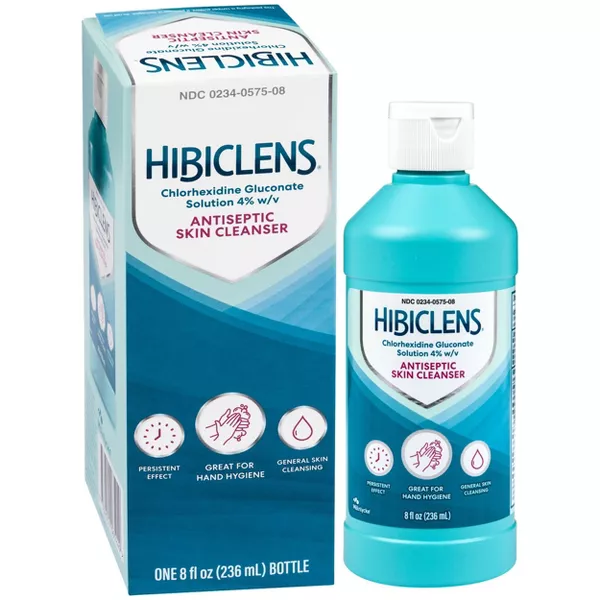
Posted on 03/31/2024 9:56:52 PM PDT by ConservativeMind
A new study demonstrates the use of a simple pre-surgical infection prevention protocol to prevent dangerous post-surgical infections.
Surgical site infections (SSIs) are a type of health care-associated infection with deadly consequences for some patients. These infections lead to a high rate of morbidity and mortality, with a patient's estimated risk of death as much as 11 times higher than normal.
Researchers aimed to evaluate the results of a protocol designed to reduce SSIs through a particular focus on the Staphylococcus aureus pathogen. The approach involved a pre-surgical intranasal application of povidone-iodine and skin antisepsis using chlorhexidine gluconate (CHG).
The study involved 688 adult patients who had hip or knee arthroplasty or spine surgery at Soroka University Medical Center between February 2018 and October 2021. Their outcomes were compared to a retrospective patient cohort from 2016 and 2017 treated before the povidone-iodine component of the protocol was implemented. Patient outcomes were tracked for 90 days after surgery.
Deploying this intervention prior to surgery helped to address a broad challenge in health care, that some 30% of the population is colonized with S. aureus without exhibiting symptoms. The pre-surgical protocol successfully eradicated S. aureus in nearly 40% of patients found to already harbor the pathogen.
The researchers found that the presence of S. aureus within the day following surgery was associated with a three-fold risk of developing an SSI.
"Our study clearly shows that we can prevent surgical site infections and keep patients safer through the use of a simple pre-surgical nasal application of povidone-iodine in combination with standard CHG bathing," said Lisa Saidel-Odes, MD. "We noted that the protocol is most effective in cases with little S. aureus present and suggest that an additional application of the povidone-iodine might be needed for patients with greater nasal colonization."
(Excerpt) Read more at medicalxpress.com ...
It could save your life, if having surgery.
Bactine and Neosporin here.
... a simple pre-surgical nasal application of povidone-iodine ...
Is that for the patient or the surgeon?
Patient
Thanks. That is interesting.
My first inclination was to think that infection from anyone’s nasal passages in an operating room would more likely come from a surgeon or other staff. The patient is usually on their back, at least lying down, and covered except for the immediate site of the operation. The staff are standing, moving around and at times over the patient. And masks are not perfect.
In any case, swabbing the nasal passages with povidone-iodine is easy.
FWIW...on occasion I get an ingrown toenail and I dont realize its all that bad till it eventually it gets infected and painful. I know this is somewhat off topic but what I do now is break open a Doxycycline capsule and put the powder directly on the infected area. I’ve done this 3 or 4 times and every time the pain is noticably better in a few hours and totally healed in 2-3 days. Ive learned now to take better care of my feet to avoid this...but just sayin...this works!

If you read it, note the info on healthcare workers. And their cell phones...
Thanks for the ping.
Both... LOL
bkmk
+1
this isnt exactly rock and roll and pre-surgial showers with Hib or povinde or hexaclora are mandated by most surgeons I know.
with ortho surgery once you are asleep they put a wash on the limb which is the antiseptic equivalent of Janitor In a Drum. Practically kills a couple of layers of skin in their strength.
Another cheap and effective anti-infective that has been around a long time is Zephiran Cloride (benzalconium cloride)
“Preoperative preparation of skin: ZEPHIRAN solutions 1:750 is recommended as an antiseptic for use on unbroken skin in the preoperative preparation of the surgical field. Detergents and soaps should be thoroughly rinsed from the skin before applying ZEPHIRAN solutions.”
I was introduced to this product over 50 years ago when my newborn son was suffering from oral thrush. He hated the antibiotic the doctor prescribed for him. I asked if there was something else effective I could use, so he said buy a bottle of Zephiran Cloride, one to 750 dilution, and swab his mouth with that a few times a day. In a few days, baby was better and found this treatment much less unpleasant. since the 1;750 dilution was safe for an infant, I imagine you could also use it for a nasal swab to reduce bacteria. This one 8 oz. $8 bottle lasted throughout my boy’s childhoods, good for skinned knees, minor cuts and the like. I just Googled it and it still can bought for a reasonable price.
The package insert information contained many uses for this amazing compound. For example, in an even weaker dilution it could be used for washing out an infected bladder, using a catheter.
Another surprising treatment I discovered was the use of green mold on oranges. Turns out this green mold on a citrus (acid) fruit is penecillin. I have rubbed it on minor cuts and scrapes that seemed a little infected, and it cleared them up just fine. This is a valuable piece of survivalists information, especially long term if you live where oranges and lemons can be grown or found.
Wrong penicillin.
Fatal pneumonia caused by Penicillium digitatum: a case report
https://bmcpulmmed.biomedcentral.com/articles/10.1186/1471-2466-13-16
Also
FYI.. THE GREEN MOLD ON THE CITRUS
Penicillium digitatum - Wikipedia
https://en.m.wikipedia.org/wiki/Penicillium_digitatum#:~:text=Penicillium%20digitatum%20(%2F%CB%8Cp%C9%9B,green%20rot%20or%20green%20mould.
Of the 101 known species of Penicillium the species roqueforti is my favorite. Someone, possibly the OP of this thread, posted an article on a study that showed a lower heart disease rate in people who at a lot of blue cheese. All types presumably.
Disclaimer: Opinions posted on Free Republic are those of the individual posters and do not necessarily represent the opinion of Free Republic or its management. All materials posted herein are protected by copyright law and the exemption for fair use of copyrighted works.